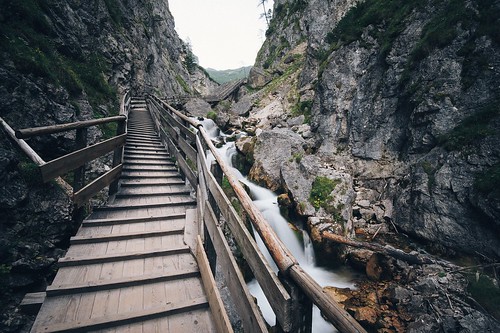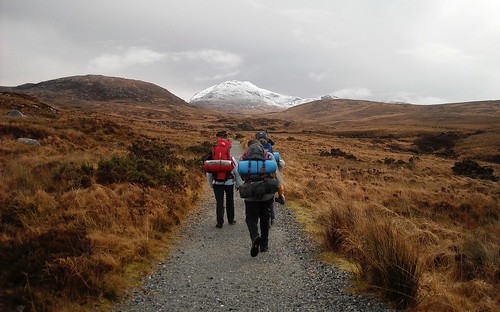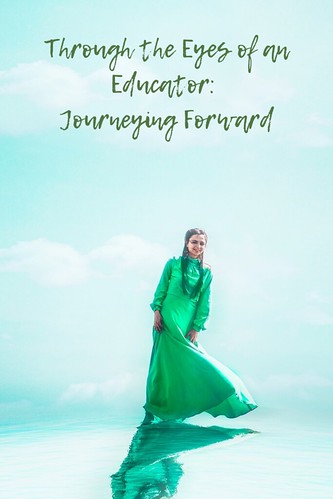Through the Eyes of an Educator: Journeying Forward
Have you ever planned a trip?
Whether you’ve gone on a multi-continental expedition or a quick weekend to the next town over, it all started with an idea, perhaps manifested a spark of anticipation and excitement, and culminated with an experiential adventure. No matter how much it cost, what modes of transport were necessary, or how many nights you slept in a luxury resort or a local yurt, the planning stage took place well and truly before the implementation of the journey.
How did it all come together?
Was the planning experience grueling or enjoyable? Did you find you had the necessary skillset to cover all of your bases, or was the best use of time and money to employ someone to help with the process? How did you bring your dreams to reality?

Every day, students walk into traditional and non-traditional classrooms to learn something. There are lessons taught that help to make our young people well rounded students, but don’t always focus on the skillsets necessary for when they reach the age of graduation. In a classroom of 30 students, there will always be those who do their work and those who don’t–and most will straddle the middle. There will always be some who don’t truly need the assistance of the teacher, while others crave it–and most will fall somewhere in between. And there will always be those with different obstacles in their path (either placed there by themselves or by means beyond their control), different likes, different learning methods, and of course, different dreams.
How do we help this next generation of learners have the tools they need to be able to plan their own adventures and make whatever their travel dreams are a reality?
Think about your first trip or your latest one. What skills did you use in that planning? How did you wind up at that special spot? Whether a national park, mountain range, paradise-infused island, business trip, or ice-cream parlor that topped the list of all lists, somehow you found it, researched it, made a plan, and managed to get yourself to your destination. How’d you do it? What skills did you use to make this happen?
How can we infuse those skills and that excitement with our learning techniques to help our learners become learned travelers?
Have a goal/dream and practice the follow through
Perhaps it was a post on social media, a pamphlet in an office, a review on a third party site, or a chat with a friend, or maybe it’s been something you’ve always wanted to try…no matter how the dream got there, there’s excitement and anticipation.
So, what did you do once it arrived?
Sometimes dreams take years to reach and other goals alter the path; that’s fine. Sometimes dreams and goals change along the way. That’s fine, too. Students are taught to read directions, follow a rubric or project sheet to then present or hand in that project, take ownership of a science experiment, learn sheet music and sing it, find out what it takes to try out for a team, or even create a special dish. These all set goals and plans a follow through. Time management, self-control, pushing through challenges, maneuvering obstacles, dealing with disappointment, and learning to recognize success are all tools that contribute to planning a grand adventure.
Whether in class or out, these lessons stand the test of time.

Research, plan, and go
The desire is there– how do we make it happen? Early on in education, there are team projects and presentations, while later, more research-based papers come into play. Students learn how to find appropriate sources, how to give credit and refrain from plagiarism, and how to set a timeline to follow to turn their papers in on time. Sometimes they need the help of an advisor or teacher along the way, and other times, peer assistance is a welcome occurrence. These skills translate into planning that desired trip. Sure, asking Siri and Alexa are fine, but what about learning to actually research questions, like:
• What valid sites are out there to research the best cruise line?
• How do I find out when national parks are open?
• What shots do I need before traveling to an international locale?
• Where would I go to earn a scuba certification?
• When do I tap into that peer or professional assistance from travel guides, pre-planned trip providers, or a travel agent?
The skills we teach matter. Things like how to start your own business, how to facilitate a party, how to create with watercolors, and how to become a lifeguard all provide tools that make up the educational framework for a student to be able to research their travel idea, plan their adventure, and get on their way.
Finances, scheduling, and logistics
Money, time, and transport are big-ticket items in the planning stages of bringing your idea to fruition. How do these facets of the planning stages manifest in the education process? Creating a spreadsheet, building and following a budget, working on math problems, and how to save or invest wisely are all facets of a journey. Getting all the travelers together at the same time, creating that timeline as far in advance as necessary, and managing other people and their calendars takes immense patience and calm–and figuring out the operational logistics of transport in the process isn’t always easy. There are questions to ask, like:
• Which apps are necessary for my trip?
• What sources are out there to help when we arrive at our destination?
• Where is it possible to get the most up to date information that is helpful for the journey?
• How do I access help if I need it?
Learning those skills in classes sets our students and fellow travelers up for success. Perhaps it’s a global history project to plan a trip to ‘Ancient Rome’, an extracurricular activity that involves managing a calendar and schedules of multiple students and teachers for a big event, perhaps it’s that business plan that’s necessary to get a loan from the bank or start your first food truck, or maybe it’s figuring out how to find out the ingredients on menu items to keep your friends with food allergies safe. There are ways to weave these skills into our traditional and non-traditional education paths. The next generation of travelers will thank us.

How to get to next?
You planned the trip, you went on that grand adventure…now what? Whether it’s ticking off items on a list, sharing experiences with friends, or finally getting that much dreamt about certification or license, how do you figure out how to get to next? Did you meet new people who told you about a new rock to climb, island to visit, or animal to seek? Did you buy your RV, visit all 50 states, or finally make it overseas to your second continent? While there’s always a bit of downtime or something like the post-travel blues that kicks in, how do we teach our students to keep moving forward and get to next?
There’s more to education than a bunch of core subjects.
There’s learning about privilege, dealing with disappointment, honing coping skills, and celebrating overcoming challenges, no matter how small or large. There’s losing a game and coming back as a stronger team next time around, missing a line on stage and not missing a step, failing a test and acing the next one, learning how to take those disappointments and spin them into a lesson, and motivating yourself to get up off the mat and continue to put one foot in front of the other.
Let’s teach our students that taking time to learn from and enjoy a success has merit, taking a rest is meaningful, and that completing one and getting a new dream is always worthwhile.

Students deserve the opportunities to see those learned skills put to action. Within all of their reading, writing, ‘rithmatics, arts, sciences, music, and more, let’s make sure that the skills they need to plan that adventure are mixed into that curriculum.
Let’s make sure that if they want to buy that RV, they know how to seek one, and that if they want to head off on that bouldering adventure, they know where to find a legal, safe, and available spot. If they want to take their family to Disneyworld, a mountaintop ski resort, or a magical Polynesian island hideaway, they know how to research, plan, and put those plans into action–and when missteps, illness, disappointment, or disaster happen along the way, they know how to take a deep breath, tap into their skills and resources, regroup with a positive attitude, and get that plan of attack underway.
There’s more to education than textbooks and primary source documents.
There are more things than traditional milestones and state mandates, and there are far more significant attributes and attitudes than assessments and data points. Our learners are human beings. They come with emotions, obstacles, dreams, goals, triumphs, struggles, character, ethics, talents, skills, likes and dislikes, and, with their ever-growing bones and brains, they’re constantly changing and growing. Tap into those talents, listen to their likes, and help them channel their strengths, find their positive attitude, and figure out how to act on their follow through.
Who knows–one day, we might just be on the trail, lounge chair, ski slope, or tour bus seat next to them. How awesome would it be to hear about how they got to this part of their journey and where they’re planning on heading next?
Happy travels–keep journeying forward.
Pin for later:

Stacey Ebert, our Educational Travels Editor, is a traveler at heart who met her Australian-born husband while on a trip in New Zealand. Stacey was an extracurricular advisor and taught history in a Long Island public high school for over fifteen years, enjoying both the formal and informal educational practices. After a one year 'round the world honeymoon, travel and its many gifts changed her perspective. She has since left the educational world to focus on writing and travel. She is energetic and enthusiastic about long term travel, finding what makes you happy and making the leap. In her spare time she is an event planner, yogi, dark chocolate lover, and spends as much time as possible with her toes in the sand.
Check out her website at thegiftoftravel.wordpress.com for more of her travel musings.



















